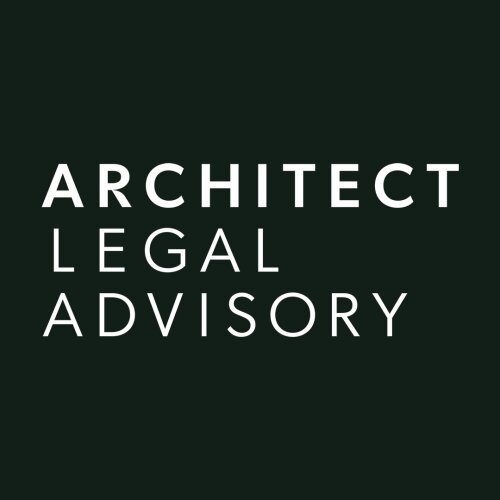Best Space Law Lawyers in South Korea
Share your needs with us, get contacted by law firms.
Free. Takes 2 min.
Or refine your search by selecting a city:
List of the best lawyers in South Korea
About Space Law in South Korea
Space Law in South Korea is a growing field that deals with legal concerns related to space activities. With the advancement of technology and increasing involvement in space exploration and satellite deployment, South Korea has developed frameworks to govern these activities. The country is a signatory to various international treaties related to space, such as the Outer Space Treaty, and has domestic laws to complement these agreements. These laws ensure that space activities are conducted safely and responsibly, benefiting both national interests and international cooperation.
Why You May Need a Lawyer
There are several situations where an individual or organization might require legal advice related to Space Law in South Korea:
- Launching satellites or spacecraft: Handling permits, compliance with international and domestic regulations, and liability issues.
- Intellectual property: Protecting inventions and technologies developed for space exploration.
- Disputes or accidents: Navigating liability and resolution of conflicts arising from space activities.
- Contractual agreements: Drafting and negotiation of contracts related to space ventures.
- Government interactions: Engaging with Korean space agencies or international bodies.
Local Laws Overview
South Korea's space-related legal framework includes laws and regulations that are aligned with international treaties and provide guidelines on space exploration and utilization. Key aspects include:
- Space Development Promotion Act: This act regulates the development, operation, and use of space technology, emphasizing safety, cooperation, and non-weaponization of space.
- Registration of Space Objects: Compliance with international obligations to register space objects nationally and with the UN.
- Liability and Insurance: Regulations regarding potential liability for damages caused by space objects and requirements for insurance coverage.
Frequently Asked Questions
What international treaties related to space has South Korea signed?
South Korea has signed key treaties including the Outer Space Treaty, the Rescue Agreement, the Liability Convention, and the Registration Convention.
What is the role of KARI (Korea Aerospace Research Institute)?
KARI is integral to South Korea's aerospace research and development, participating in international collaborations, and advancing the country's capabilities in space exploration.
Do I need a permit to launch a satellite?
Yes, launching a satellite requires permits that ensure compliance with international and local regulations. This includes registration and fulfilling safety standards.
How is liability determined in case of an accident involving a space object?
Liability is determined based on international conventions and domestic laws, evaluating factors like fault, damage location, and involved parties.
Are there specific environmental regulations for space activities?
Environmental protection is emphasized, with regulations to minimize debris and comply with both national standards and international guidelines.
What is the significance of the Space Development Promotion Act?
This Act aims to enhance innovation, manage space resources responsibly, and ensure that activities are safe and foster international cooperation.
Can private companies engage in space activities in South Korea?
Yes, private entities can engage in space-related activities, provided they comply with legal, safety, and regulatory requirements set by the government.
Is there a special court for space-related disputes?
No, space-related legal conflicts typically go through the regular court system, though specialized legal professionals often handle these cases.
Are there educational programs in South Korea focusing on Space Law?
Yes, several universities and institutions offer courses and research programs dedicated to Space Law and policy, reflecting its growing importance.
What steps should I take if an international dispute arises?
Engaging legal experts familiar with both domestic and international law is crucial to navigate the complexities of space-related disputes effectively.
Additional Resources
For further information and assistance, consider reaching out to:
- Korea Aerospace Research Institute (KARI): Assists with research and projects.
- Ministry of Science and ICT: Governs policies and regulations concerning space activities.
- International Legal Organizations: Provide insights into international treaties and law practices.
Next Steps
If you require legal assistance in the field of Space Law in South Korea, consider the following steps:
- Identify the specific area of concern related to your space activities, such as intellectual property, liability, or compliance.
- Consult with a lawyer or a legal firm specializing in Space Law to understand your rights, obligations, and options.
- Prepare all relevant documents and contracts that might be necessary for legal review.
- Reach out to relevant governmental bodies to ensure compliance with national and international laws.
Lawzana helps you find the best lawyers and law firms in South Korea through a curated and pre-screened list of qualified legal professionals. Our platform offers rankings and detailed profiles of attorneys and law firms, allowing you to compare based on practice areas, including Space Law, experience, and client feedback.
Each profile includes a description of the firm's areas of practice, client reviews, team members and partners, year of establishment, spoken languages, office locations, contact information, social media presence, and any published articles or resources. Most firms on our platform speak English and are experienced in both local and international legal matters.
Get a quote from top-rated law firms in South Korea — quickly, securely, and without unnecessary hassle.
Disclaimer:
The information provided on this page is for general informational purposes only and does not constitute legal advice. While we strive to ensure the accuracy and relevance of the content, legal information may change over time, and interpretations of the law can vary. You should always consult with a qualified legal professional for advice specific to your situation.
We disclaim all liability for actions taken or not taken based on the content of this page. If you believe any information is incorrect or outdated, please contact us, and we will review and update it where appropriate.
Browse space law law firms by city in South Korea
Refine your search by selecting a city.















